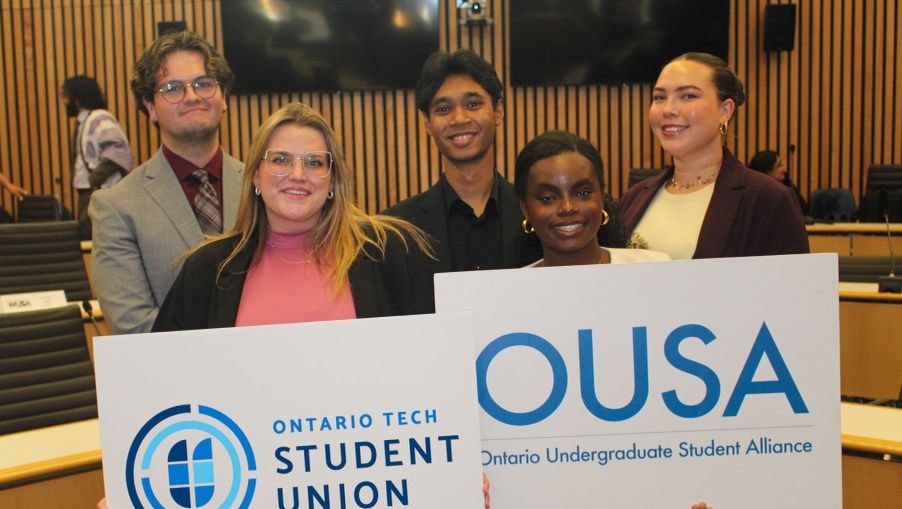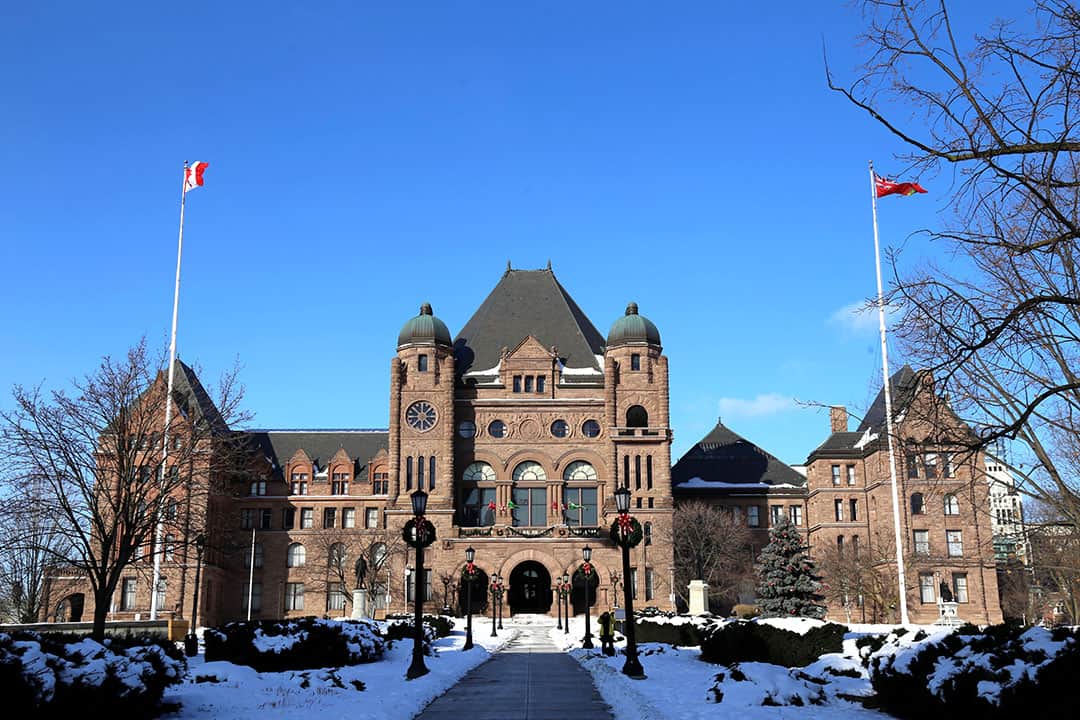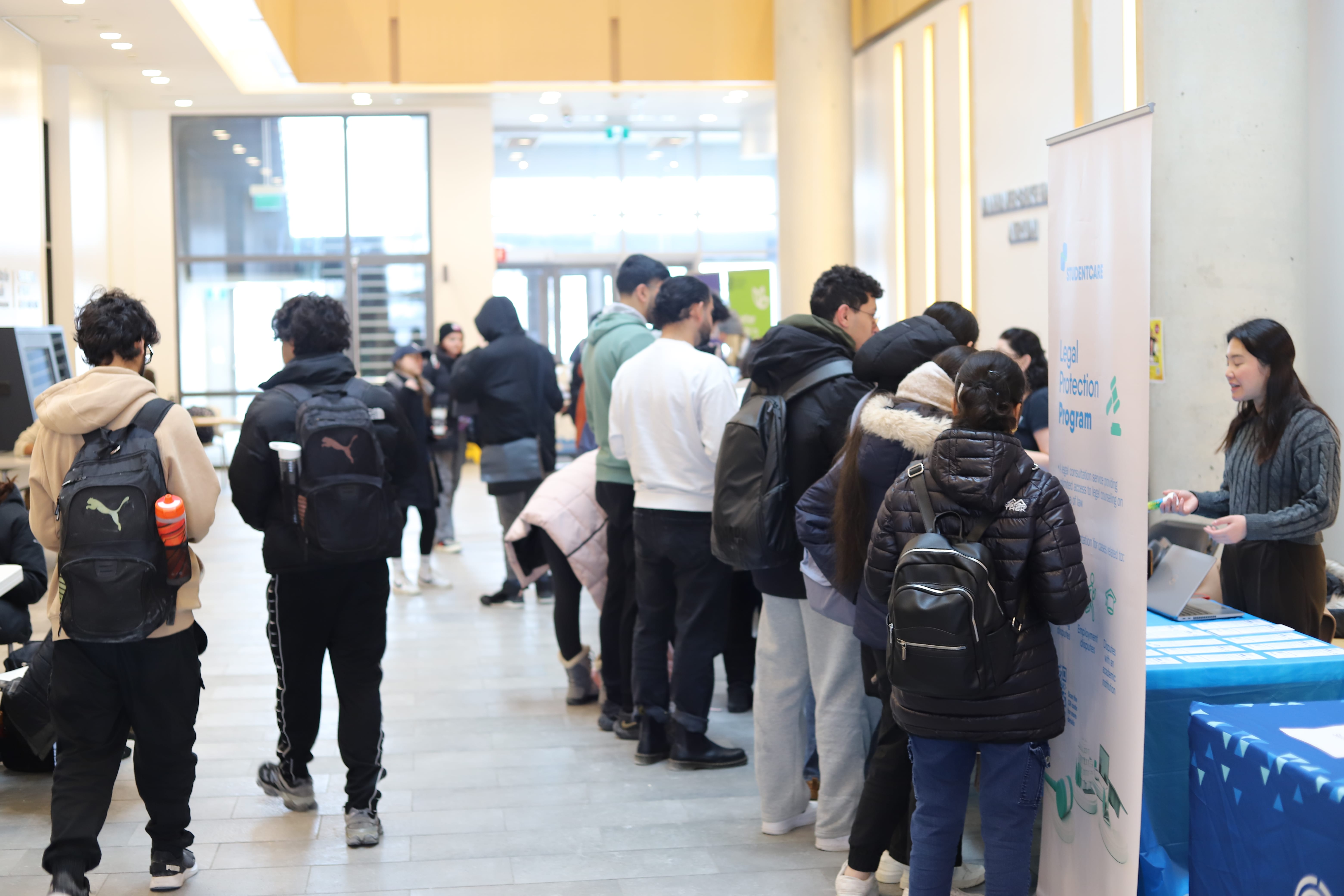When Students Speak, Change Happens: What I Learned at the OUSA General Assembly
Every year, the Ontario Undergraduate Student Alliance (OUSA) gathers all its member schools together for a General Assembly, outlining their student advocacy priorities for the year. As the VP Student Affairs, I had the opportunity to join them for this year’s meeting in Sudbury, joining members from Western, Brock, McMaster, Queen’s, Laurier, Laurentian, Waterloo, and Trent, who represent the collective interests of ~160,000 post-secondary students.
Here’s what I learned:
- Student voices hold real power
- Policy isn’t boring when it’s personal
- Advocacy doesn’t end at GA
First, what is an OUSA General Assembly?
It is a four-day conference where student leaders collaborate, debate, and refine policy papers that shape OUSA’s advocacy with the provincial government. Every year, OUSA members gather to discuss students’ priorities for the year, and turn those into policy recommendations, which they take to Members of Parliament at Queen’s Park in Toronto, holding counsel with the politicians who can directly affect governmental change.
This year, we worked on three key papers, each addressing ways to make Ontario’s post-secondary system more accessible, transparent, and supportive for every student:
- Accountability and System Vision
- Indigenous Students
- Mature Students
Student voices hold real power
When I walked into the assembly, I didn’t expect to feel the energy hit that hard. Dozens of students from across Ontario, all there for one reason: to make real change. You could feel it in every conversation, in every amendment debated. It’s easy to forget how much power we actually have as students until you’re in a room where that voice drives policy. Every amendment, every late-night debate showed me that advocacy isn’t just paperwork or policy, it’s people who care deeply about the future of education.
Seeing how our ideas turn into official recommendations that shape provincial advocacy made me realize that the student movement in Ontario isn’t just alive, it’s strong.
Policy isn’t boring when it’s personal
I also learned that policy becomes personal when you’re the one shaping it. We spent hours debating individual words, but it never hit me till OUSA how much those small words matter. Something as small as changing a sentence could mean better access to funding, improved accessibility or support systems for thousands of students. It’s not just politics, it’s making sure students like us are heard at the provincial level in Queen’s Park. It was eye-opening to see how these discussions translate into real impact, and why organizations like OUSA matter so much.
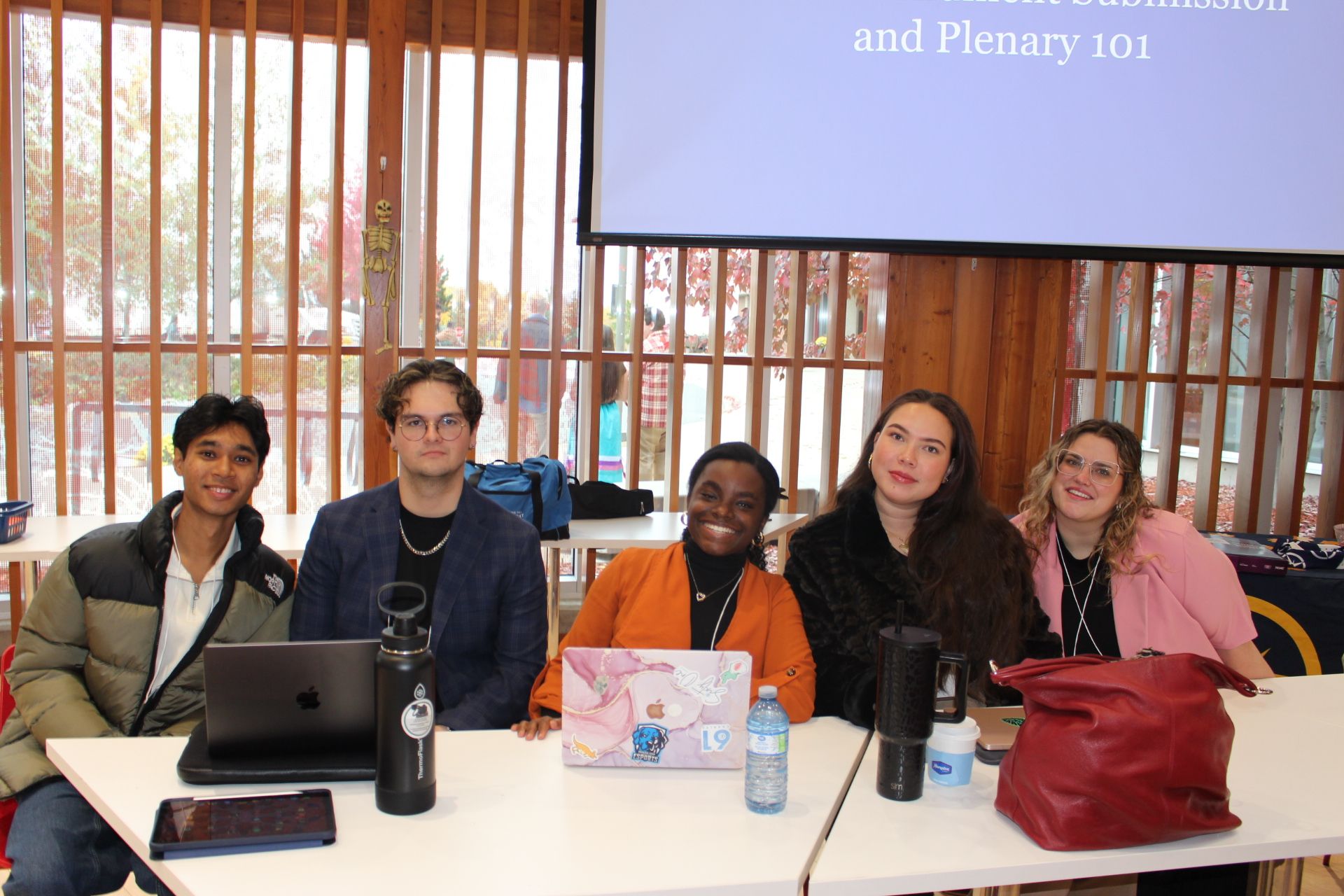
Advocacy doesn’t end at a meeting
While we wrapped up in Sudbury, advocacy doesn’t stop there. The policies passed at the OUSA General Assembly will guide OUSA’s lobbying efforts during the advocacy week. From November 23 to 26, the OTSU president and I will join OUSA members to speak to government officials about how to better support post-secondary students in our province, and push for meaningful change!
Though these big-ticket lobbying events are important, advocacy happens all year-round; it happens in our conversations with students, in the surveys you fill out, and in our meetings and town halls. We are here for you, and your voices power the work we do with OUSA!
Closer to home, I’m turning my attention to local advocacy, starting with improving our transportation system. We’re working with Durham Region Transit to push for a service that better fits student schedules and needs. Because advocacy isn’t only about legislation or committees, it’s about improving the day-to-day experience of students right here on campus.
Why student leadership matters
At its core, the OUSA General Assembly reminded me just why student leadership is so important. When we show up, speak up, and push forward together, our collective voice can, and does, move mountains. For more than 25 years OUSA has been responsible for achieving major policy wins for students in Ontario, including repurposing $365 million of tax credits into grants for low-income students, increasing the minimum salary required before having to repay student loans, amending Ontario Regulation 131/16 to improve institutional gender-based violence policy, and much more.
To learn more about OUSA’s work and read the full policy papers, visit OUSA.ca, and if you have any advocacy concerns you’d like the OTSU to address, please email me at VPaffairs.otsu@ontariotechu.ca, or book a meeting at otsu.ca/appointments.
Together for change,
Anwoy Barua, VP Student Affairs
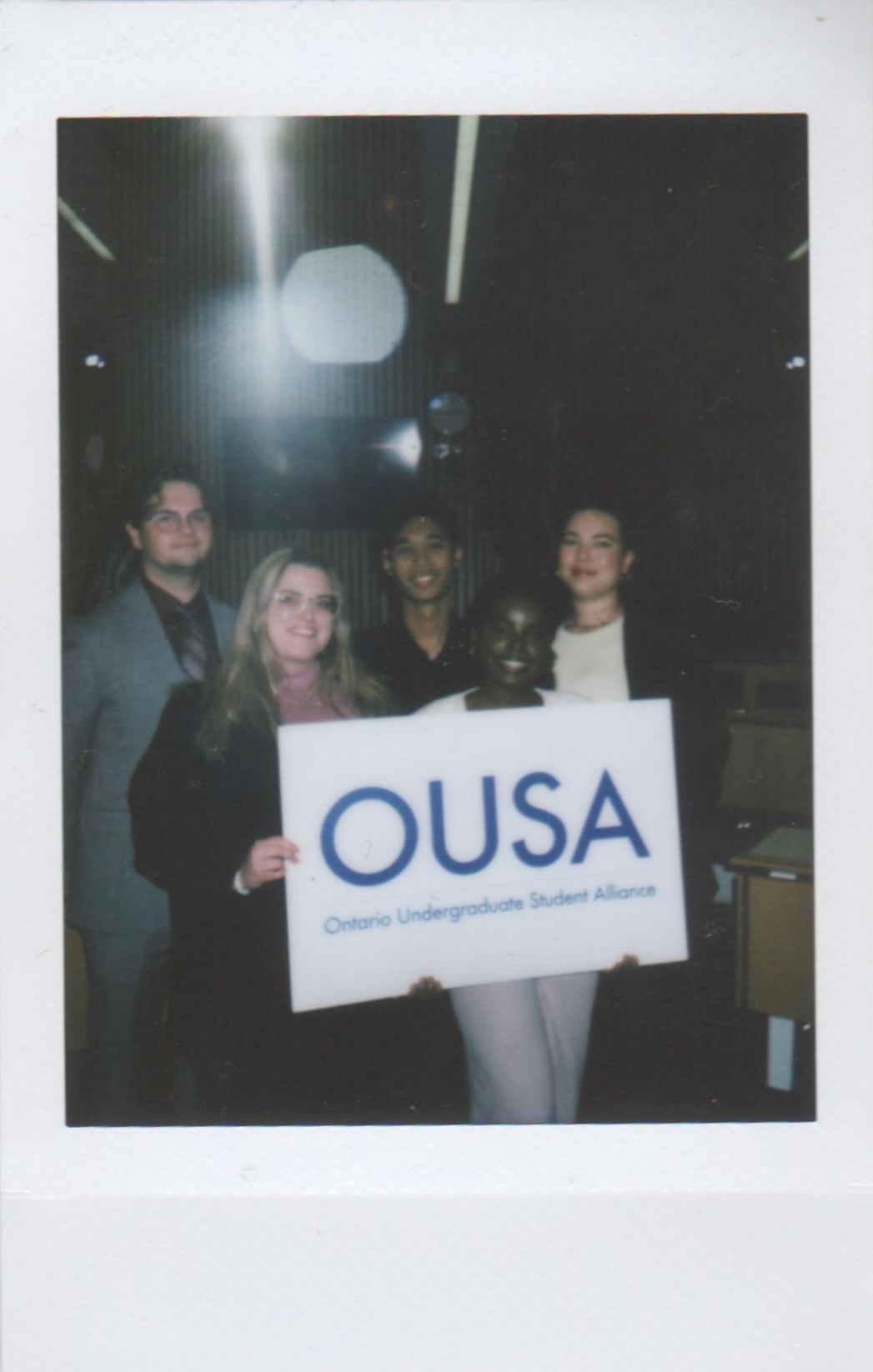
Read full article
Latest OTSU Blog
- Winter Fest 2026Oh, January! A time of resolutions and renewed commitments to locking in earlier and getting those grades up. If you’re dreading the return to campus in the dead of winter, don't fret, we got you!To make things more welcoming and to ease back...
- Lead, Grow, and Make Change: Why Student Leadership MattersHere’s a little secret that no one is talking about but is such an underrated way of supercharging your resume, while having fun, meeting great friends and mentors, traveling to conferences, and getting paid to make a difference in the lives of...
- Bill 33—What Students Need to KnowBill 33 is a new provincial law that gives the government the power to review and regulate certain student fees, the same fees that fund your clubs, esports teams, mental wellness supports, events, and your U-Pass. It matters now because the Bill...
- Introducing Midnight Miles: Get $10 on your Lyft Ride Home During Exam SeasonIt’s late, the library lights are dimming, and your brain’s officially hit capacity for caffeine and course notes. We know all too well that exam season can stretch into the night. Enter: Midnight Miles. The OTSU is teaming up with Lyft to offer...
- Learn about self-care resources on campus at the health plan fair!Are you ready to connect with a variety of great health care providers and campus resources, all in one place?Come to the OTSU Health Plan Fair on Thursday, November 27, from 11 a.m. to 2 p.m. in the BIT Atrium, where you can connect with...
- Celebrating Student Success: The OTSU Academic Excellence AwardsThe Ontario Tech Student Union (OTSU) is proud to announce the Academic Excellence Awards — a new award recognizing students who go above and beyond in their academic journey.This year, we’re giving away four awards totalling $1,000:Two...



